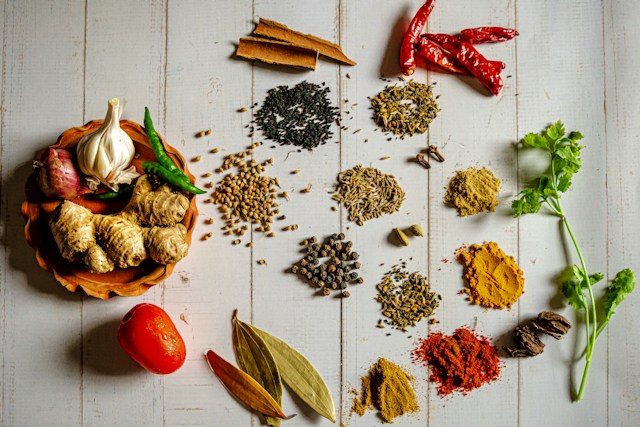Have you tried the 30 plant-based foods challenge?
The American Gut Study, the largest published study to date of the human microbiome, found that those who ate 30+ different types of plant-based foods per week had a more diverse microbiome than those who ate less than 10. The gut microbiome refers to the trillions of bacteria, viruses and fungi that live in your gut. Gut microbiome diversity is associated with better digestion, skin, energy, immunity and mood amongst others. This is probably why so many people benefit when switching to a plant-based diet. It’s also the reason I tend to focus on “inclusion” rather than “exclusion” when working with clients. This means focusing more about what you add to your diet and less about taking foods out. However, you don’t have to go vegan to benefit. Just add more plant foods to your diet.What counts as plant foods?
- Nuts and seeds: almonds, Brazil nuts, hazelnuts, walnuts, sunflower, sesame, pumpkin and flaxseeds.
- Grains: brown rice, wheat, oats, millet, buckwheat, corn, quinoa.
- Legumes: Green peas, chickpeas, mung beans, white beans red beans, pinto beans, broad beans, red lentils, green lentils, fava beans, split peas, kidney beans, cannelloni beans, lima beans
- Fruit and vegetables: Berries, tomatoes, cucumbers, carrots, apricots, sweet potatoes, peaches, papaya, apricots, plums, melons, aubergine, lemons, lettuce, rocket, kale, broccoli, brussel sprouts, cabbage, spinach, chard, fennel, celery, beetroot, onions, plums, cauliflower, cherries, bananas, mushrooms, parnsips, turnips, oranges, spinach, apples, rhubarb, leek, pumpkin.
- Herbs and spices: Parsley, mint, sage, saffron, turmeric, thyme, basil, lemongrass, fennel, cumin, cinnamon, chives, pepper, cardamon, caraway, chilli, clove, coriander, ginger, nutmeg, paprika, rosemary, oregano, lavender, ginger, dill.
Ways you can incorporate more plant foods in your diet
- Eat a variety of fruit and vegetables every day aiming for a rainbow of colours.
- Incorporate fruit and vegetables with every meal e.g. grated apple or carrot in your porridge or overnight oats, hummus and carrots for a snack, avocado in a sandwich and a salad with dinner.
- Add herbs and spices to your meals (dry & fresh both count).
- Replace some or all of the meat in your meals with plant protein such as tofu or beans.
- Sprinkle mixed seeds on meals.
- Try different varieties of pasta (soya bean, lentil, chick pea).
- Vary your grains (microwavable bags of grains are handy).
- Salads, stir-frys and Buddha / burrito bowls are great options to get lots of different plants in one meal.
- Have a daily smoothie with fruit and vegetables. Avocados and spinach work well with bananas and berries or mango.
- Add fruit and seeds to your snacks. Healthy flapjacks, muffins and energy balls work well.




